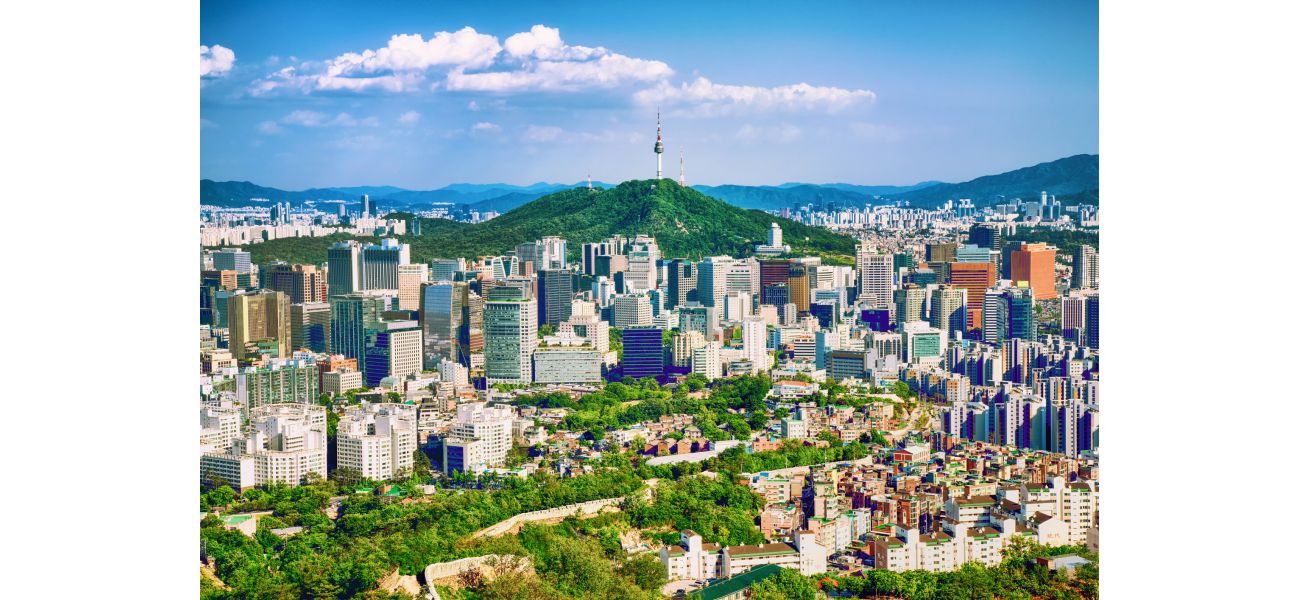Many South Korean adoptees struggle with feeling disconnected from their cultural roots.
Since the aftermath of war, South Korea has been known for sending hundreds of thousands of children overseas, earning the title of "baby exporter."
September 13th 2024.

For decades, South Korea has been known as the world's largest exporter of babies. This is due to the aftermath of war, which left many mothers destitute and unable to care for their children. As a result, hundreds of thousands of babies were sent overseas for adoption. Now, as these adopted children have grown into adults and are scattered across the globe, they are trying to trace their origins. However, many have accused adoption agencies of corruption and malpractice, including forcibly taking them from their mothers.
A recent report by a Korean government commission supports these claims and uncovers new evidence of the coercive methods used to separate mothers from their children. The Truth and Reconciliation Commission, established in 2022 to investigate these allegations, found that in the 1980s, more than a dozen babies were taken from government-funded care facilities and given to adoption agencies, sometimes immediately after birth. The commission examined three care facilities in Daegu and Sejong and discovered that 20 children were transferred to adoption agencies in 1985 and 1986. Most of these children were adopted by families in the United States, Australia, Norway, and Denmark.
In a statement to CNN, the commission stated that these circumstances confirm the facilities' role in forcing mothers to give up their parental rights. This is a bittersweet victory for adoptees who have been seeking accountability from the government for decades. The commission is still investigating cases involving falsified paperwork, and an interim report is expected later this year.
More than 200,000 South Korean children have been adopted overseas since the 1950s, following World War II and the Korean War. While adoptions continue today, there has been a decline in recent years due to changes in adoption laws and efforts to address systemic issues and reduce the number of children adopted overseas. However, for many adoptees who grew up in predominantly white communities, there is a sense of disconnection from their Korean roots and a feeling of not belonging.
This has led many adoptees to search for their biological families. The commission's findings have evoked mixed emotions among these adoptees, with some feeling horror at the systemic issues uncovered, but also hopeful that the investigation will shed light on what they have long suspected. Susanné Seong-eun Bergsten, who was adopted from South Korea and raised in Sweden, states that while it is terrifying to hear about the systemic issues, it is not surprising. Her biological family found her as a young adult, and while her paperwork was not falsified, she can understand the struggles as she has been involved in advocacy for Korean adoptees. She also points out that adoption papers often lack crucial information that could provide more context, such as cultural background and the struggles faced by their parents in the post-war era.
Mark Zastrow, a Korean adoptee raised in the US, sees the commission's findings as an important milestone. He believes that it validates what Korean adoptees have known for decades: the narrative that mothers willingly gave up their children for adoption is often fiction. While he and Bergsten see this as a promising step in the right direction, they urge the government to continue taking accountability and offer reparations to adoptees and their families. Zastrow also highlights that adoption affects all levels of Korean society and that there is much more to be acknowledged and addressed.
A recent report by a Korean government commission supports these claims and uncovers new evidence of the coercive methods used to separate mothers from their children. The Truth and Reconciliation Commission, established in 2022 to investigate these allegations, found that in the 1980s, more than a dozen babies were taken from government-funded care facilities and given to adoption agencies, sometimes immediately after birth. The commission examined three care facilities in Daegu and Sejong and discovered that 20 children were transferred to adoption agencies in 1985 and 1986. Most of these children were adopted by families in the United States, Australia, Norway, and Denmark.
In a statement to CNN, the commission stated that these circumstances confirm the facilities' role in forcing mothers to give up their parental rights. This is a bittersweet victory for adoptees who have been seeking accountability from the government for decades. The commission is still investigating cases involving falsified paperwork, and an interim report is expected later this year.
More than 200,000 South Korean children have been adopted overseas since the 1950s, following World War II and the Korean War. While adoptions continue today, there has been a decline in recent years due to changes in adoption laws and efforts to address systemic issues and reduce the number of children adopted overseas. However, for many adoptees who grew up in predominantly white communities, there is a sense of disconnection from their Korean roots and a feeling of not belonging.
This has led many adoptees to search for their biological families. The commission's findings have evoked mixed emotions among these adoptees, with some feeling horror at the systemic issues uncovered, but also hopeful that the investigation will shed light on what they have long suspected. Susanné Seong-eun Bergsten, who was adopted from South Korea and raised in Sweden, states that while it is terrifying to hear about the systemic issues, it is not surprising. Her biological family found her as a young adult, and while her paperwork was not falsified, she can understand the struggles as she has been involved in advocacy for Korean adoptees. She also points out that adoption papers often lack crucial information that could provide more context, such as cultural background and the struggles faced by their parents in the post-war era.
Mark Zastrow, a Korean adoptee raised in the US, sees the commission's findings as an important milestone. He believes that it validates what Korean adoptees have known for decades: the narrative that mothers willingly gave up their children for adoption is often fiction. While he and Bergsten see this as a promising step in the right direction, they urge the government to continue taking accountability and offer reparations to adoptees and their families. Zastrow also highlights that adoption affects all levels of Korean society and that there is much more to be acknowledged and addressed.
[This article has been trending online recently and has been generated with AI. Your feed is customized.]
[Generative AI is experimental.]
0
0
Submit Comment





